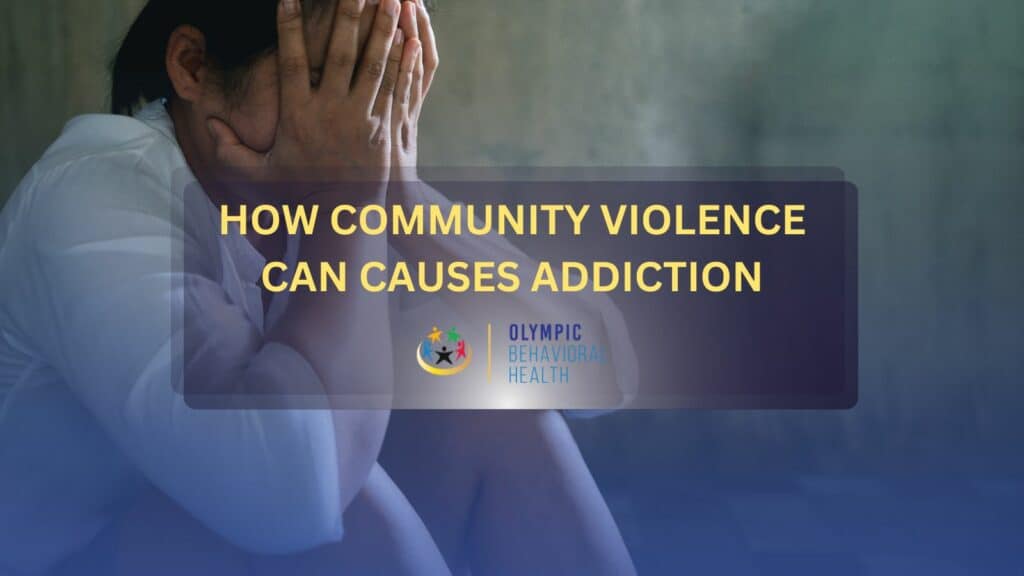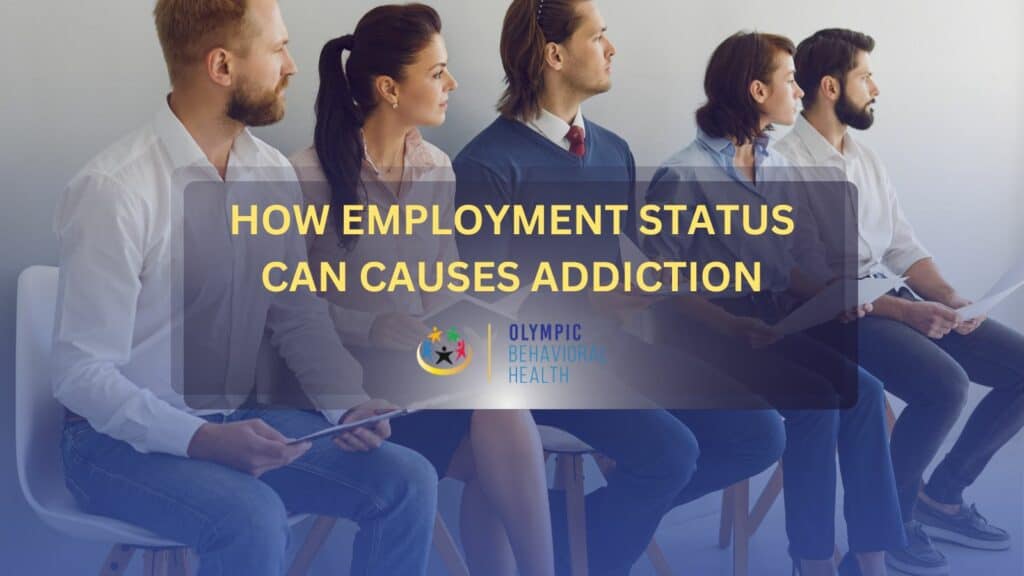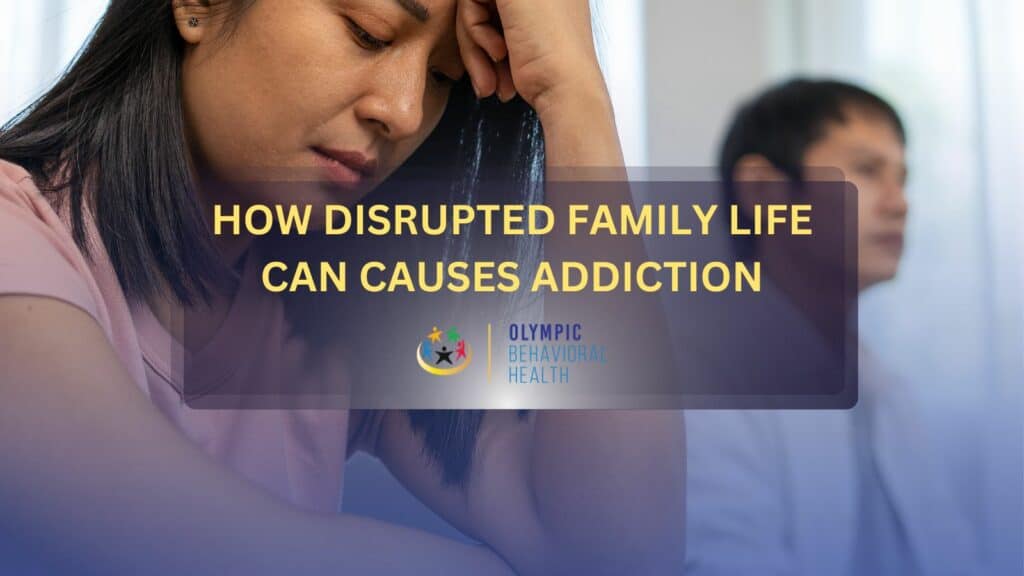Trauma and addiction are a vicious cycle. Trauma, like abuse or a serious event, can leave lasting emotional scars. These scars can make people more likely to turn to drugs or alcohol. Research backs this up.
According to ‘PTSD: National Center for PTSD’ a quarter of trauma survivors and 40% of those with PTSD struggle with addiction. Trauma can change the brain’s wiring, affecting how we manage emotions and making us more vulnerable to addiction.
This vulnerability stems from several factors. Trauma can disrupt the brain’s reward system, making individuals crave the intense pleasure that substances can provide. It can also impair emotional regulation, making it harder to cope with difficult emotions in healthy ways. Additionally, trauma can lead to feelings of isolation and disconnection, which can further fuel the desire to self-medicate with substances.
What is Trauma Exposure?
According to The National Center for PTSD (PTSD National Center for PTSD, U.S. Department of Veterans Affairs) trauma exposure is described as experiencing or witnessing a traumatic event. The American Psychiatric Association (APA) defines a traumatic event as involving actual or threatened death, serious injury, or sexual violence.
Exposure can occur by experiencing the event yourself, witnessing it happening to someone else, or learning that it happened to a loved one. The National Center for PTSD also emphasizes that trauma exposure can include repeated or prolonged exposure to traumatic events.
What are events that can cause trauma?
Life can throw many challenges our way, and some of these experiences can be deeply upsetting and leave a lasting impact. These are often called traumatic events. Trauma can affect people differently, so what one person finds harrowing another might manage with relative ease. Here are some of the many events that can cause trauma, highlighting how these experiences can vary depending on the individual.
- Physical assault: Being beaten, mugged, or otherwise physically attacked can be a traumatic experience. For example, a person who is mugged at gunpoint may experience flashbacks, nightmares, and difficulty trusting others after the event.
- Sexual assault: Experiencing any type of unwanted sexual contact can be traumatic. This includes rape, sexual harassment, and incest. For example, a woman who is raped may develop symptoms of PTSD, such as anxiety, depression, and social isolation.
- Domestic violence: Living in a home where there is physical or emotional abuse can be very traumatic for both children and adults. For instance, a child who witnesses their parents fighting violently may grow up to have difficulty forming healthy relationships.
- Emotional abuse: Emotional abuse is any type of behavior that is designed to intimidate, humiliate, or control another person. This can include yelling, name-calling, and threats. For example, a child who is constantly called names by their parents may develop low self-esteem and difficulty trusting others.
- Parental neglect: When parents fail to meet their child’s basic needs for food, shelter, and emotional support, it can be traumatic for the child. For instance, a child who is neglected by their parents may have difficulty forming attachments to others and may struggle with feelings of loneliness and isolation.
- Bullying: Bullying is repeated aggressive behavior directed towards another person. It can be physical, verbal, or social. For example, a student who is bullied at school may experience anxiety, depression, and difficulty concentrating in class.
- Natural disasters: Natural disasters such as hurricanes, earthquakes, and floods can be very traumatic experiences. For instance, a person who loses their home in a natural disaster may experience feelings of grief, loss, and hopelessness.
- Accidents: Serious accidents, such as car accidents or falls, can be traumatic experiences. For example, a person who is in a car accident may develop post-traumatic stress disorder (PTSD), which can cause flashbacks, nightmares, and anxiety.
- Chronic illness: Living with a chronic illness, such as cancer or diabetes, can be a traumatic experience. For example, a person who is diagnosed with cancer may experience feelings of fear, anxiety, and depression.
How does Trauma then lead to Addiction?
People use drugs primarily for the way they make them feel right away. Drugs like alcohol not only reward the brain with pleasure, but they also help people avoid negative feelings. This “feel-good” effect is what keeps people coming back for more, according to research by Griffiths, M. in 2005 titled “A ‘components’ model of addiction within a biopsychosocial framework.” Trauma gives many individuals the need to find that ‘feel-good’ repeatedly.
Thus repeated use of a substance results in dependence and eventually addiction. Here are some other ways trauma can lead to addiction.
- Neurological Links: A key factor is the impact of trauma on the brain’s reward system. A 2015 study by Uhl GR, Koob GF and Cable J titled ‘The neurobiology of addiction’ found that trauma, particularly during childhood, can disrupt the development of the brain’s reward circuitry. This can lead to a heightened need for stimulation and an increased vulnerability to the rewarding effects of addictive substances.
- Epigenetic Changes: Trauma can also trigger epigenetic changes, which are modifications in gene expression that don’t alter the underlying DNA sequence. A 2017 research paper in “Nature Neuroscience” suggests that these epigenetic modifications can increase vulnerability to addiction by affecting stress response systems and reward processing pathways.
- Cognitive Impairment: Trauma can lead to cognitive difficulties, including problems with memory, attention, and decision-making. A 2010 study by Goforth, H. W., Murtaugh, R., & Fernandez, F., titled ‘Neurologic aspects of drug abuse’ explored how these cognitive impairments can make individuals with a history of trauma more susceptible to addiction by hindering their ability to resist cravings and make healthy choices.
- Increased Vulnerability to Mental Health Disorders: Trauma is a significant risk factor for developing mental health disorders like depression, anxiety, and PTSD. A 2018 review by Dauber H, Braun B, et al titled ‘Co-occurring Mental Disorders in Substance Abuse Treatment: the Current Health Care Situation in Germany’ highlights how these co-occurring conditions can create a vicious cycle, with individuals using substances to cope with mental health symptoms, which then worsen the underlying trauma and addiction.
- Self-Soothing Deficits: Trauma can disrupt a person’s ability to develop healthy self-soothing mechanisms. A 2021 study by Bøhle K, Otterholt E and Bjørkly S. titled ‘Protective Factors Against Psychological Distress Among Inpatients in Substance Use Treatment: A Cross-Sectional Study’ suggests that individuals who lack these skills are more likely to turn to substances to manage difficult emotions and experiences.
It’s crucial to remember that these factors interact and influence each other. Understanding this complex interplay is essential for developing effective treatment approaches that address both the trauma and the addiction itself.
What are Signs that You Suffer From Trauma?
Trauma can manifest in many ways, both psychologically and physically. Here are some signs that you might suffer from trauma.
Re-experiencing
- Flashbacks: Vivid memories or reliving of the traumatic event as if it’s happening again.
- Nightmares: Disturbing dreams related to the trauma.
- Intrusive thoughts: Unwanted and upsetting thoughts about the trauma.
Avoidance
- Avoiding people, places, or situations that remind you of the trauma.
- Withdrawing from social activities or hobbies you once enjoyed.
- Difficulty concentrating or remembering things.
Negative thoughts and moods
- Feeling anxious, depressed, or hopeless.
- Feeling shame, guilt, or anger.
- Difficulty trusting others.
- Feeling emotionally numb or disconnected from others.
Physical symptoms
- Difficulty sleeping or sleeping too much.
- Changes in appetite (eating too much or too little).
- Irritability or outbursts of anger.
- Difficulty relaxing.
- Muscle tension or pain.
- Headaches or stomach aches.
Everyone experiences trauma differently, so not everyone will have all of these signs. Also, some of these signs can also be symptoms of other mental health conditions. If you are experiencing several of these signs for more than a few weeks, it’s important to seek professional help.
What Other Potential Causes of Addiction are there?
Addiction is a complex issue fueled by a combination of factors. While trauma can be a significant trigger, biological influences like genetics and brain chemistry, mental health conditions, social pressures, socioeconomic disadvantage, and even age can all play a role. These factors can make individuals more susceptible to the rewarding effects of substances or increase their vulnerability to using them as a coping mechanism.
Can a lack of quality parenting cause addiction?
Yes, a lack of quality parenting can contribute to the development of addiction. Research has shown that individuals who have experienced trauma, such as neglect or abuse from caregivers, are at a higher risk for developing addiction later in life.
This is because these traumatic experiences can lead to difficulty regulating emotions and coping with stress, making substances or behaviors (such as substance use or gambling) appealing as a means of escape. In fact, children who have experienced early childhood trauma are nine times more likely to develop an addiction.
Can service in the military cause addiction?
Yes, service in the military can potentially cause addiction as individuals may experience trauma while on active duty. This trauma can lead to self-medication with addictive substances or behaviors as coping mechanisms.
In fact, studies have shown that veterans are at a higher risk for substance abuse and addiction compared to the general population. Additionally, they may also be prescribed opioids for pain management, which can also lead to addiction.

Share This Post



